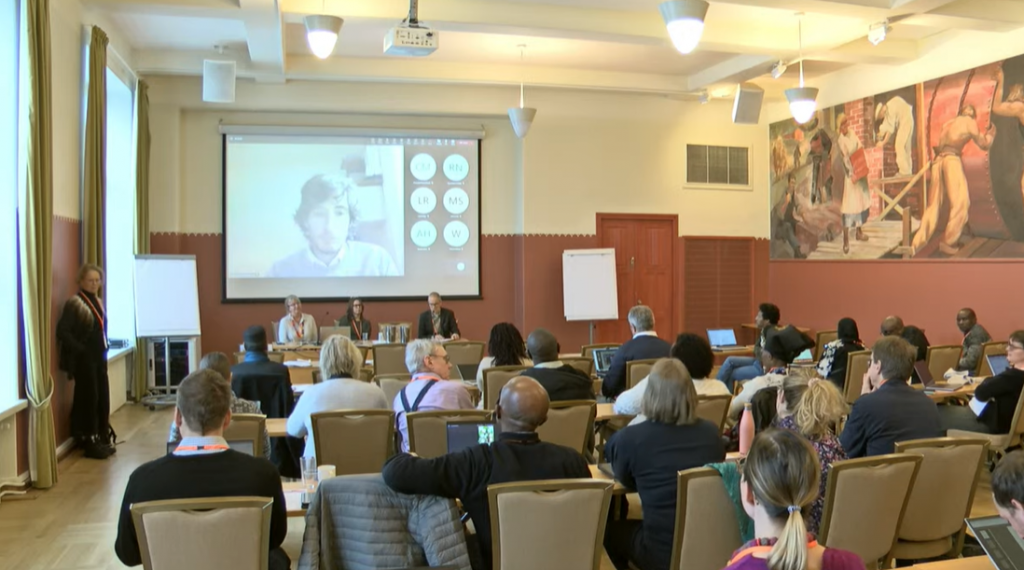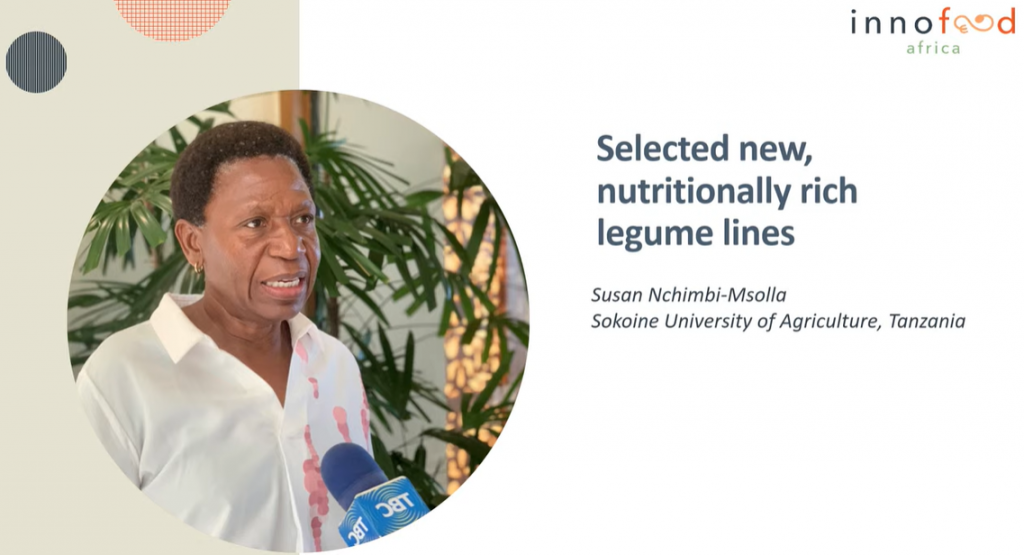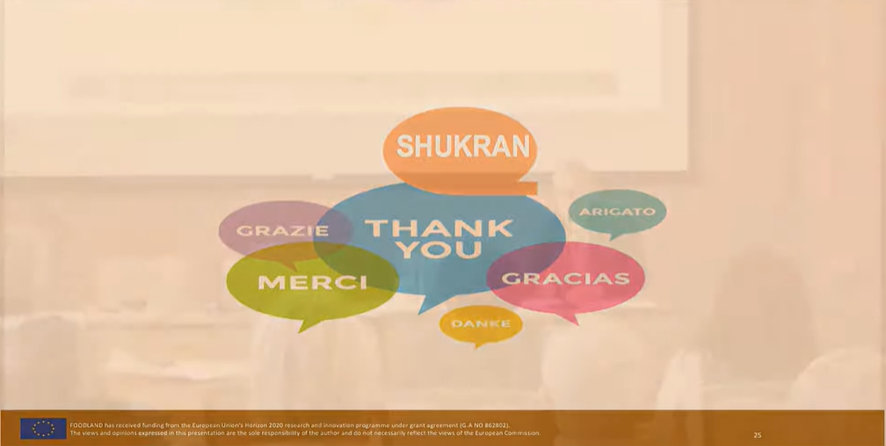Fruitful FNSSA Sister Project Synergy Summit event

On 10-11 January 2024, several FoodLAND partners participated in the FNSSA Sister Project Synergy Summit event, together with partners of the other sister projects InnoFoodAfrica and HealthyFoodAfrica, held in Helsinki, Finland. This was a unique opportunity to share the steps forward taken by the different projects on the path towards the transformation of the agri-food system in Africa. Very interesting insights and results emerged at the joint event.
From the part of FoodLAND, representatives of the Sokoine University of Agriculture (Tanzania), the University of Nairobi (Kenya) and the University of Bologna (Italy) presented the results attained so far in the project.
Susan Nchimbi-Nsollla (Sokoine University) shared research on selected new, nutritionally rich legume lines, specifically the common bean, a very important component in the Tanzanian diet. A selection of the best 4 lines has been done by participatory evaluation (based on yield, disease resistance, etc) and selection based on Fe and Zn levels. The cooking time was tested too. After being subjected to on-farm trials will be validated at a wide scale.
Wambui Kogi-Makau (University of Nairobi) reported the FoodLAND research done on the nutritional recommendations that are relevant, suitable and feasible to implement in 5 African partner countries (Kenya, Tunisia, Morocco, Uganda, Tanzania). 360 nutritional recommendations were generated in different proportions for different five countries and are ready for exploitation. Specific NRs for Non-Communicable Disease (NCD) were generated based on data from FoodLAND´s 29-food group diet quality questionnaire (DQQ).
Valentino Marini Govigli´s (University of Bologna) presentation focused on consumer attitudes towards new nutrient-dense local food products. FoodLAND developed an innovative approach combining surveys and trust, risk and time games to understand consumer attitudes and willingness to change. Results reveal the variety of factors affecting the nutrition-relevant decision-making of consumers. For example, consumers are more likely to modify their diets in favour of nutritional products if the food item is reasonably priced and guarantees a high standard of food safety, or trust influences the consumer propensity to make healthier food choices.
Elisa Carloni (University of Brescia) explained the case of the Food Hubs, multi-actor FoodLAND centres for food systems. They bring together a community of local operators in the region and strengthen the implementation of technological innovations. At the Food Hubs, relevant actors and organizations (smallholder farmers, food processors (SMEs), authorities, researchers, and NGOs) aggregate to enhance the organizational, technological, cultural, and operational conditions enabling local food supply chains improvement.
Santina Romani (University of Bologna) reported the realisation of four bio-based packaging prototypes able to preserve the overall quality of food products during storage and transportation (1 prototype for 4 food categories: fruit & vegetables, composite flours, baby and therapeutic foods, fish products). The characterisation of the materials has been carried out at lab-scale in Tunisia, Tanzania, Kenya and Uganda. The next step will be the validation at industrial scale.



